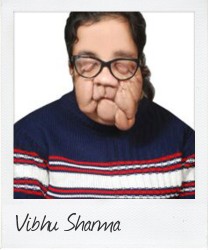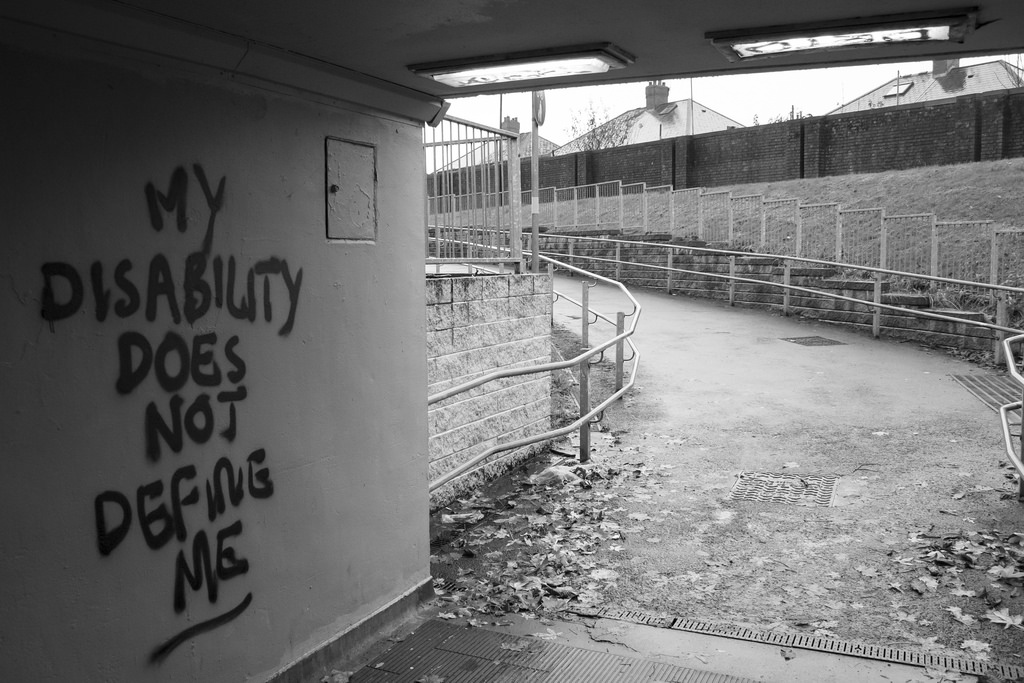“Women with disabilities can earn a living”
April 21st, 2017 India can rightly claim to be making continuous efforts to look after persons with disabilities, writes Vibhu Sharma, 24, a Correspondent from Delhi in India, but the issue now is to implement the laws that are on the books.
India can rightly claim to be making continuous efforts to look after persons with disabilities, writes Vibhu Sharma, 24, a Correspondent from Delhi in India, but the issue now is to implement the laws that are on the books.
In 1997, India set up a corporation to provide loans to disabled people to facilitate their economic development and entrepreneurial activities, and to employ the disabled to create more job opportunities. Recently, the government of India added another feather in its cap with the Rights of Persons with Disabilities Act.
The need now is to implement existing policies. Not many resources are allocated to oversee proper implementation, and the situation is indeed even more convoluted for women with disabilities. It is necessary to point out that women in India have been subjected to marginalisation and stereotypes, and in this context, the situation of women with disabilities is only worsened by their physical challenges.
The women’s rights movement, as in other developing countries, is at its initial stage. The challenges faced by young women with disabilities are multiple. They are deprived of political, social, economic and health opportunities and face poverty, abuse and violence. Moreover, surveys conducted by the disabled women activist groups indicate that a large number of women with disabilities are entirely unaware of the laws that guard their interest.
In this scenario, there are two aspects that must be addressed immediately to achieve the objectives of the laws for the welfare of women with disabilities.
Primarily, there has to be an emphasis curbing attitudinal barriers. Activist groups must seek to spread awareness about the equal capabilities and potential of persons with disabilities, particularly women. The law has given equal opportunity on paper. However, it is now the responsibility of persons with disabilities themselves to grab the opportunity in order to be equal. Persons with disabilities must accept that policy making, implementation, and benefiting from such policies revolve in concentric circles, of which they are the centre. While they must advocate for better policies, they must also advocate for implementation by making those responsible aware of their duties, and then yield the benefit of their efforts.
Simultaneously, there has to be an emphasis on educating the self. Activist groups of women with disabilities must adopt short-term and long-term strategies focused on education and awareness, which are the keys to the advancement of women and girls with disabilities, and on the appropriate skill set that would make older women employable. While there should be efforts on the engagement of girls with disabilities in formal education, and technical training, older women with disabilities must be provided with appropriate skills that enable them to earn their living independently.
In fact, one of the initiatives of the government as well as social groups is educating the elderly. With emphasis on the laws and policies directly effecting persons with disabilities, along with the basic education of reading and writing, the elderly – irrespective of whether they are men or women, disabled or non-disabled – would gain knowledge of the laws protecting their rights. While it would certainly benefit the already-disabled men and women, it would also benefit those people who might be rendered disabled later in life.
Efforts have been made in India to integrate persons with disability into the workforce. There is need for a special employment guarantee designed for empowerment and employment of women with disabilities. For this purpose, the development of appropriate home-based income generation programs like coaching, data feeding and training, along with provision of appropriate agencies such as marketing boards for the sale of goods produced by women with disabilities would be immensely useful.
The International Labour Organization undertakes to develop inclusive strategies and promote general skills and entrepreneurial development to train persons with disability to become assets in the work force. It also works with governments as well as organizations representing persons with disabilities to form legislative policies that include persons with disabilities into the work force.
In Zambia the ILO has undertaken to make vocational education and training more accessible to persons with disabilities. In Bangladesh, the ILO provides advise on the skill set as well as the national strategies that can be adopted to integrate persons with disabilities in the general work force. If the national or regional organisations of persons with disabilities operating within the Commonwealth countries emulate these activities and provisions of the ILO, the barriers for women with disabilities to earn a living would be lifted not only in India, but also in other countries of the Commonwealth.
Reach me on Twitter: vibhusharma_11
photo credit: Dai Lygad My disability does not define me via photopin (license)
…………………………………………………………………………………………………………………
About me: I am passionate about working for and with people with disabilities, particularly visual impairment. I am proud that students with visual impairment benefit from my success convincing the Central Board of Secondary Education to conduct India’s high school exams for these students on computers with screen-readers.
I represent the status of persons with visual impairment at international and national conferences. I am Co-Chair of the Global Partnership of Education for Children with Disabilities UNICEF, having been a member since 2013.
…………………………………………………………………………………………………………………
Opinions expressed in this article are those of the author and do not necessarily represent the views of the Commonwealth Youth Programme. Articles are published in a spirit of dialogue, respect and understanding. If you disagree, why not submit a response?
To learn more about becoming a Commonwealth Correspondent please visit: http://www.yourcommonwealth.org/submit-articles/
…………………………………………………………………………………………………………………




